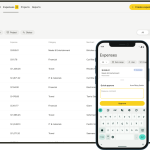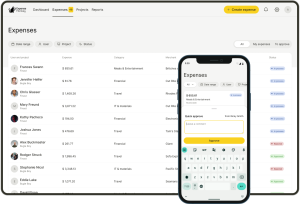Overcoming financial obstacles is no easy feat, but by creating a plan and taking one step at a time it may become simpler. This lesson provides strategies to reach your financial goals such as budgeting, tracking expenses and seeking professional advice.
Realizing financial goals involves setting objectives, devising a plan and sticking to it despite unexpected hurdles that arise. Success requires discipline and persistence when unexpected obstacles appear.
1. Create a Budget
Budgeting can help you save money, meet financial goals, and enhance your situation. Keep track of income and expenses each month manually or using an app, then adjust as necessary – for instance if your target date for saving for vacation looks like it might slip past, consider postponing it, cutting the amount saved or opening an online checking account that offers higher-than-average interest rates like Citizens Banking Account Online Citizens Checking Account.
Create a budget that takes into account your income, expenses and debt payments. Explore different budgeting methods – zero-based budgeting or the 50/30/20 rule could work well – until you find one that works for you. Group your goals into short-term, medium-term and long-term categories to provide greater clarity when setting long-term plans and ensure they lead towards tangible goals with an identifiable end date.
2. Set Goals
Financial goals help keep you on the path toward financial freedom. Utilize a general problem-solving process to help identify and set these objectives.
Start off by setting short-term financial goals you can accomplish quickly, such as creating a budget or setting aside emergency savings funds. After setting this initial set of short-term goals, set longer term ones like paying off debt or saving a certain amount every month – as these may take years of work before reaching. Finally, set longer-term ones such as buying a home or retiring comfortably as additional goals to strive towards.
Be sure to review your goals regularly, taking into account life changes that could impede their attainment and celebrating small victories along the way.
3. Review Your Expenses Regularly
Examining your expenses regularly is key to successful budgeting. Doing this allows you to keep tabs on how your spending compares against your intended amounts, enabling you to make quick changes if necessary – for instance catching online shopping costs early can prevent funds meant for bills or savings from going towards them instead.
An efficient way to track expenses is through careful record-keeping. Start by reviewing all bank statements, credit card bills and financial reports from the past 12 months in order to identify all of your recurring expenses – look out for any patterns, spikes or gradual increases within expense categories as well as ways you could potentially save money or optimize spending habits.
Reviewing your budget at least monthly is generally recommended, however more frequent reviews could be beneficial if there are sudden income or expense changes or you have set yourself an interim goal to reach.
4. Seek Professional Advice
Few are fortunate enough to enjoy a completely seamless financial journey, but that doesn’t have to mean prolonged suffering over money troubles. With some assistance and planning ahead for success, you can overcome financial hurdles and create a brighter future for yourself.
Start by setting goals for yourself. These could include financial ones like paying down debt and saving for retirement, or lifestyle ones like spending less and taking a vacation. In order to reach these goals on time and within your desired timelines, set up an effective system. Break large goals down into smaller ones, regularly reviewing them with yourself to adjust timelines or modify goals as necessary.
If you need additional guidance in managing your finances, there are various resources that can provide support and advice, including credit counseling organizations and government-approved money management courses. In addition, friends or family may offer advice.
5. Celebrate Small Victories
Celebrating small victories is an effective way of maintaining momentum and staying motivated towards reaching your financial goals. Be it an automatic deposit, cutting out an expensive restaurant meal or opting to stay home instead, every small triumph counts and should be acknowledged and celebrated!
This strategy transforms an intimidating journey into manageable steps that bring greater rewards, helping combat mental fatigue and decrease stress levels.
Track and celebrate each win as it happens. You can do this through social media sharing, recording them on a chart/timeline or keeping a checkmark in a budget or coin jar to remind yourself of your achievements – or by rewarding yourself for each milestone achievement with an appropriate treat!












More Stories
The Economics and Personal Finance of Decentralized Finance (DeFi) Ecosystems
Financial Literacy for Gig Economy Workers: Your Roadmap to Stability in an Unpredictable World
Incorporating Inflation Into Your Financial Planning